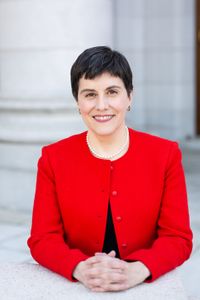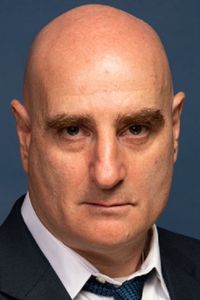Suzanne Bass
Judge Suzanne Bass has earned widespread respect during her time on the bench in Florida’s 4th Circuit Court. Though she keeps a relatively low profile, her reputation for fairness, compassion, and commitment to serving the community continues to grow. This article will explore Bass’s background, her path to becoming a judge, key rulings and decisions she has made, and her ongoing legacy as one of the state’s most respected jurists. Understanding the life and career of Judge Bass provides insight into what makes an effective and admired member of the judiciary.
Early Life and Education
Before embarking on her legal career, Suzanne Bass first had to go through school and complete her education. Her academic journey would lay the foundation for her future success in the courtroom.
Education at Emory University
Bass began her higher education at Emory University in Atlanta, Georgia. She graduated from Emory with a Bachelor of Arts degree in Political Science. Her interest in politics and the law was apparent even as an undergraduate student. Bass excelled academically at Emory, cementing her interest in a legal career.
Studying Law at the University of Richmond
After completing her political science studies at Emory, Bass set her sights on law school. She enrolled at the University of Richmond School of Law in Virginia. This prestigious institution allowed her to hone her legal skills and knowledge. Bass graduated with her Juris Doctor degree, ready to begin practicing law professionally.
Early Legal Career
Before joining the judiciary, Suzanne Bass gained invaluable experience in various legal roles. Her early career provided the foundation that made her so effective on the bench later in life.
Working as a Public Defender
Fresh out of law school, Bass took a position as an Assistant Public Defender. She worked under Public Defender Mil Thomas. As a public defender, Bass represented indigent clients who could not afford legal services. She handled their criminal cases, getting firsthand experience in the courtroom. Bass spent 3 years in the Public Defender’s office advocating for the accused.
Switching to the State Attorney’s Office
After serving as a public defender, Bass made the switch to the State Attorney’s office. She worked under State Attorney Ed Austin and spent 3 years as an Assistant State Attorney. This provided her with experience prosecuting cases from the other side. She could now see the criminal justice system from both perspectives.
Teaching Law as an Adjunct Professor
In addition to her work as a prosecutor, Bass also spent time teaching the next generation of lawyers. She worked for a year and a half as an Adjunct Professor at the Florida Coastal School of Law. Bass enjoyed sharing her knowledge and preparing students for the realities of the legal profession.
Private Legal Practice
After her stints in both the public and private sectors, Bass opted to open her own law firm. This launched the next phase of her varied and vibrant legal career.
Opening Her Own Firm in 1984
In 1984, Bass went into private practice for herself. She opened the Law Office of Suzanne Bass, a firm that would operate for nearly 30 years. Opening her own firm allowed Bass the freedom to shape her career as she saw fit.
Focusing on Family and Juvenile Law
Throughout the 1980s, 1990s, and 2000s, Bass focused much of her private practice on family law and juvenile law. She handled divorce, child custody, and adoption cases. Bass also represented children in juvenile court proceedings. These areas became her specialties during her time in private practice.
Judicial Career
After close to three decades running her own law firm, Suzanne Bass eventually set her sights on the judiciary. Her patience and commitment paid off with a successful campaign for judge.
First Election as Judge in 2012
In 2012, Bass made her first run for judge of Florida’s 4th Judicial Circuit Court. Despite being a first-time candidate, her strong reputation earned her an easy victory. Bass won the election handily, officially starting her judicial career.
Presiding Over the 4th Circuit Court
Upon taking office in January 2013, Bass began presiding over cases in the 4th Circuit Court. This court oversees Duval, Clay and Nassau Counties in the area of Jacksonville. As judge, Bass heard cases in civil and criminal court, plus juvenile, family, and probate matters.
Handling Complex Cases
On the bench, Judge Bass developed a reputation for her ability to handle complex cases and legal issues. Lawyers appearing before her knew to come prepared, as she asked incisive questions and ensured proceedings were conducted fairly. Her intellect and determination were assets in the courtroom.
Gaining a Reputation for Fairness
Above all else, Bass earned widespread praise for her commitment to fairness and objectivity. Lawyers and litigants could trust that she ruled on the facts and law, not personal bias. Her impartial approach bolstered the public’s faith in the justice system.
Re-Election in 2018
After serving admirably for five years, Bass came up for re-election in 2018. Her first term was so well-regarded that she earned another one easily.
Running Unopposed
When Bass ran for re-election to the 4th Circuit Court, she did so without opposition. No other candidate entered the race, a sign of the respect she commanded. Unopposed bids for re-election are rare, underscoring the positive view of Bass’s performance.
Earning Another Term Until 2025
By winning re-election in 2018, Bass won another six year term on the bench. She will continue to serve as judge until January 2025. Had she faced opposition, Bass’s re-election bid likely still would have succeeded given her standing in the legal community.
Judicial Philosophy and Approach
Over her years as a judge, certain patterns have emerged in Suzanne Bass’s overarching judicial philosophy and approach to her role. Her views have guided her work.
Belief in Compassion and Rehabilitation
Bass has expressed a belief in compassion and rehabilitation within the legal system. While holding defendants accountable, she also looks for opportunities to help put their lives on a better path. Bass believes punishment alone rarely leads to positive outcomes.
Dedication to Serving the Community
Throughout her career, Bass has maintained a strong dedication to serving her local community. She recognizes that her role as judge provides the chance to help real people resolve real disputes. Bass never takes this responsibility lightly.
Commitment to Equality and Justice
Fundamentally, Bass strives to ensure everyone receives fair and equal treatment under the law. She upholds principles of justice, objectivity, and adherence to rule of law above all else. Bass will not waver in her commitment to justice.
Notable Rulings and Decisions
Throughout her more than ten years as a judge, Suzanne Bass has presided over many notable cases and delivered influential rulings. Her decisions have concrete impacts.
Sentencing Guidelines for Juvenile Offenders
One major decision by Judge Bass changed sentencing guidelines for juveniles tried as adults in 4th Circuit criminal courts. Her ruling established more leniency and judicial discretion in sentencing for youths, emphasizing rehabilitation over punishment. This demonstrated her compassion for young offenders.
Establishing New Protocols for Forensic Evidence
Bass also instituted important changes regarding forensic evidence used in criminal trials. She instituted new protocols requiring more detailed labeling, tracking, and recording of physical evidence at crime labs and forensic testing facilities. This bolstered the integrity of evidence.
Expanding Resources for Victims of Domestic Violence
In decisions related to family law, Bass helped expand resources available locally for victims of domestic violence. By allocating funds and ordering new policies, she strengthened protections for victims seeking safety, counseling, and a better life.
Community Involvement and Activism
Beyond her official role, Judge Bass has long been involved in community activities and supportive of important causes. She recognizes her position allows her to positively influence the community in multiple ways.
Volunteering with Local Schools and Nonprofits
Bass is a familiar face at community events, especially those that support young people, women, and the disadvantaged. She volunteers with schools to promote education and donates her time to organizations aiding poverty, hunger, and homelessness in her district.
Serving on Boards and Commissions
Throughout her career, Bass has served on local boards and commissions that address social issues, especially juvenile justice reform and resources for victims of abuse. She works to implement real systemic changes.
Supporting Women in the Legal Profession
Within the legal community, Bass actively mentors young female lawyers and advocates for more women in leadership roles. She speaks frequently about gender equality in the law and ensuring women have pathways to success.
Conclusion
After over a decade on the bench, Judge Suzanne Bass has clearly established an admirable legacy defined by fairness, compassion, and a dedication to justice. Her career serves as an example of the positive impact judges can have when they uphold the highest ideals of their position. Even after 2025 when her current term ends, Bass will no doubt continue using her skills and experience to advance noble causes enhancing the community. She exemplifies so much of what citizens should hope for and expect in those who serve on the judiciary. While avoiding any self-promotion, Judge Bass lets her conduct speak for itself. That conduct communicates integrity, wisdom, and honor – the hallmarks of an exceptional life in the law.
FAQ
What circuit court does Judge Bass serve on?
Judge Bass serves on Florida’s 4th Judicial Circuit Court, overseeing Duval, Clay and Nassau Counties. She presides primarily in Jacksonville.
How long is Judge Bass’s current term as judge?
Bass won re-election in 2018 to a six year term that will last until January 2025. At that point, she would have to run again for another term if she chooses.
What university did she attend for undergrad?
Suzanne Bass completed her undergraduate studies at Emory University in Atlanta, where she earned a B.A. in Political Science.
What was her first legal job after law school?
After earning her J.D., Bass’s first role was working as an Assistant Public Defender under Public Defender Mil Thomas.
When did she open her own private law firm?
Bass went into private practice for herself in 1984 after working as both a public defender and prosecutor. She focused mainly on family and juvenile law.








